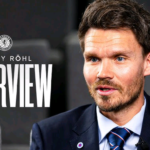High Court Orders AUU Basketball Coach to Stop Signing Infants to the Team: A Landmark Ruling in Sports Law
In a landmark decision that has sent shockwaves through the world of sports, the High Court has issued an order prohibiting the coach of AUU Basketball from signing infants to the team. This ruling comes after a controversial case where the coach had been accused of breaching fundamental child protection and sports regulations. The decision is being hailed as a significant step forward in ensuring that young athletes are treated with the care and respect they deserve, while also protecting the integrity of competitive sports.
The Controversial Practice
The practice in question revolved around the AUU Basketball team, a well-known youth basketball organization. Over the past few years, there had been growing concerns about the coach’s decisions to recruit players as young as 12 months old, which many experts and concerned parents argued was highly inappropriate. While the goal of the program was to provide early exposure to the sport, critics questioned the ethics and the safety of enrolling such young children in such a competitive and physically demanding environment.
Experts in child development and sports psychology have long debated the issue of early specialization in sports. While some believe that early involvement can help children develop skills and confidence, many argue that pushing children to commit to an intense sports regimen at such a young age can have long-term detrimental effects on their physical, emotional, and mental well-being. This practice has sparked concern about overtraining and burnout among young athletes.
A Growing Outcry
The controversy came to a head when a group of parents filed a lawsuit against the coach, claiming that the practice of signing infants to the team was both reckless and harmful. The parents argued that the coach’s actions were not only unethical but also violated the spirit of sportsmanship. They expressed deep concern that the infants were being subjected to a training regime far too advanced for their age, leading to potential physical harm.
In response to the lawsuit, the AUU Basketball coach defended the decision, stating that the early recruitment of players was intended to give them a head start in the sport. The coach argued that basketball, like many other sports, requires a strong foundation of skills and physical conditioning, and that starting young was the best way to ensure future success. However, the defense was met with widespread skepticism from the public and child development specialists alike, who believed that such practices ignored the developmental needs of young children.
Despite the coach’s defense, the court took a strong stance on the matter. In a detailed ruling, the High Court concluded that the coach had violated numerous child welfare regulations and that the practice of signing infants to the team was both dangerous and unacceptable. The court noted that children at such a young age are still in the crucial stages of their physical, emotional, and cognitive development, and that subjecting them to intense physical activity and competitive environments was not in their best interest.
The Legal Ruling
The court’s ruling was clear and emphatic. In its decision, the High Court ordered the AUU Basketball coach to immediately cease the practice of signing infants to the team. The court also required that the coach undergo training in child protection and sports ethics, emphasizing the importance of prioritizing the well-being of young athletes over the pursuit of competitive advantage.
The judgment also set an important precedent for the future of youth sports. Legal experts believe that the ruling could have far-reaching implications for how youth sports organizations recruit and train athletes, particularly in the areas of child protection, safety, and ethical standards. The case has underscored the need for sports organizations to adopt clear guidelines that prioritize the health and safety of young athletes, ensuring that their involvement in sports is based on age-appropriate practices that align with their developmental needs.
Reactions to the Ruling
The ruling has been met with widespread support from child advocacy groups, sports professionals, and parents alike. Many have praised the court for its decision, highlighting the importance of protecting young children from undue pressure in competitive sports environments.
Dr. Emily Thompson, a leading expert in child psychology, commended the court’s ruling, stating, “This decision is a step in the right direction. It acknowledges that children’s physical and emotional needs should always come first. Sports should be about fun, development, and building confidence, not about pushing young kids into an environment that is too demanding for their age.”
Parent groups have also expressed relief, with many voicing concerns about the impact of intense early training on their children. Linda Harris, a mother of three children who had participated in youth sports, said, “I’m so glad to see that the court has taken a stand. It’s so easy to get caught up in the pressure to perform, but this ruling reminds us that our children’s health and happiness should always come first.”
However, not all reactions to the ruling have been positive. Some coaches and sports enthusiasts have voiced concern that the decision could limit opportunities for young athletes, particularly those who are exceptionally talented or passionate about their sport. Critics argue that early exposure to competitive sports can be a valuable tool for developing skill and fostering a love of the game.
The Future of Youth Sports
As a result of this ruling, many youth sports organizations are now expected to review their recruitment practices and ensure that their policies are in line with child welfare standards. This case has raised critical questions about the balance between competition and child development, and how best to nurture young athletes without placing them under undue strain.
Moving forward, it is likely that the court’s decision will prompt further discussions about how to create a more sustainable and ethical framework for youth sports programs. Sports organizations will need to strike a delicate balance between fostering young talent and protecting the well-being of children. This ruling serves as a reminder that the primary focus of youth sports should be on fostering enjoyment, learning, and growth, rather than on pushing children to compete at an early age.
As the conversation around youth sports continues to evolve, one thing is clear: the well-being of young athletes must remain the top priority. The High Court’s ruling has set an important precedent, and it is hoped that other sports organizations will follow suit in ensuring that their practices align with the best interests of the children they serve.








